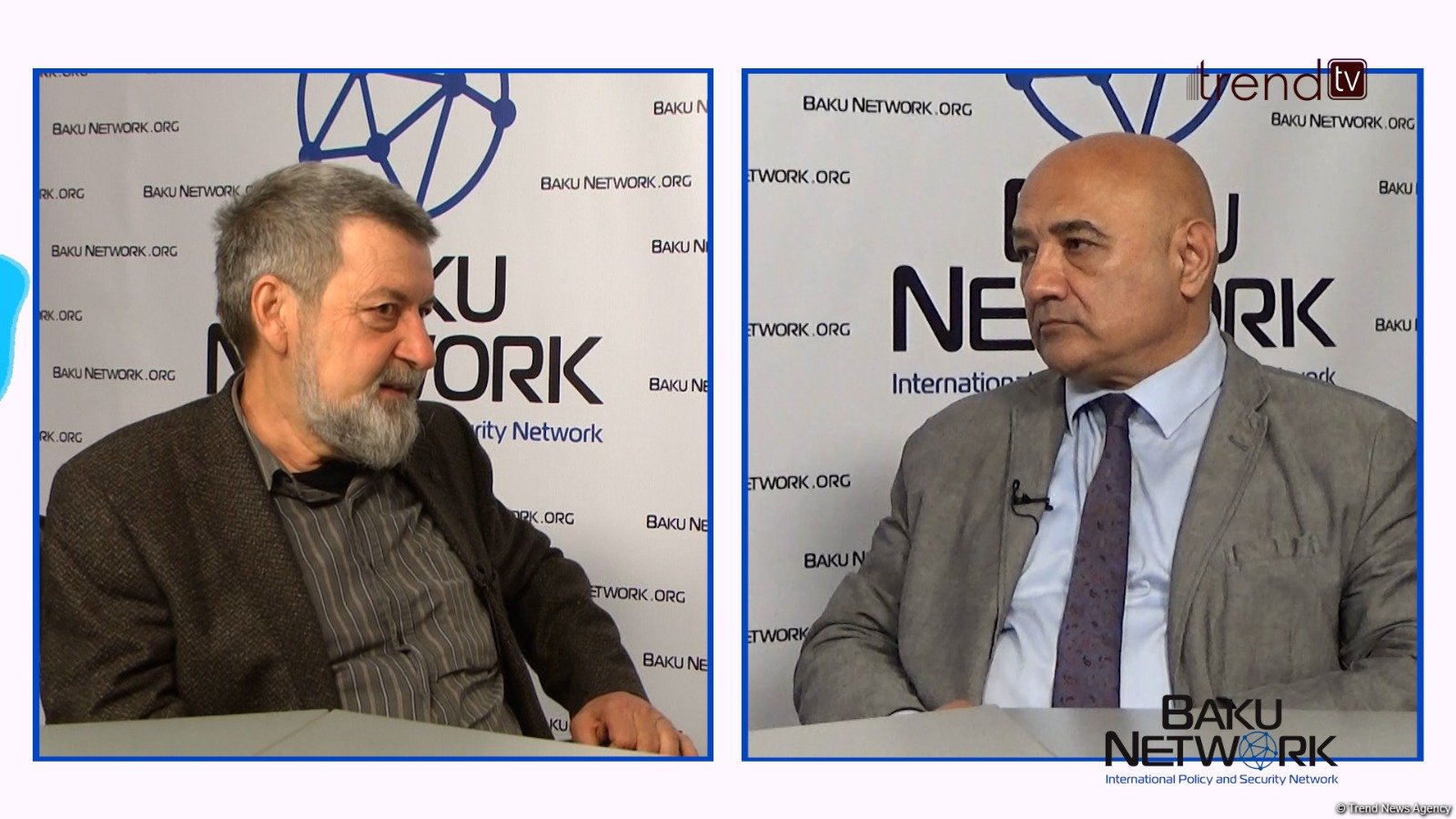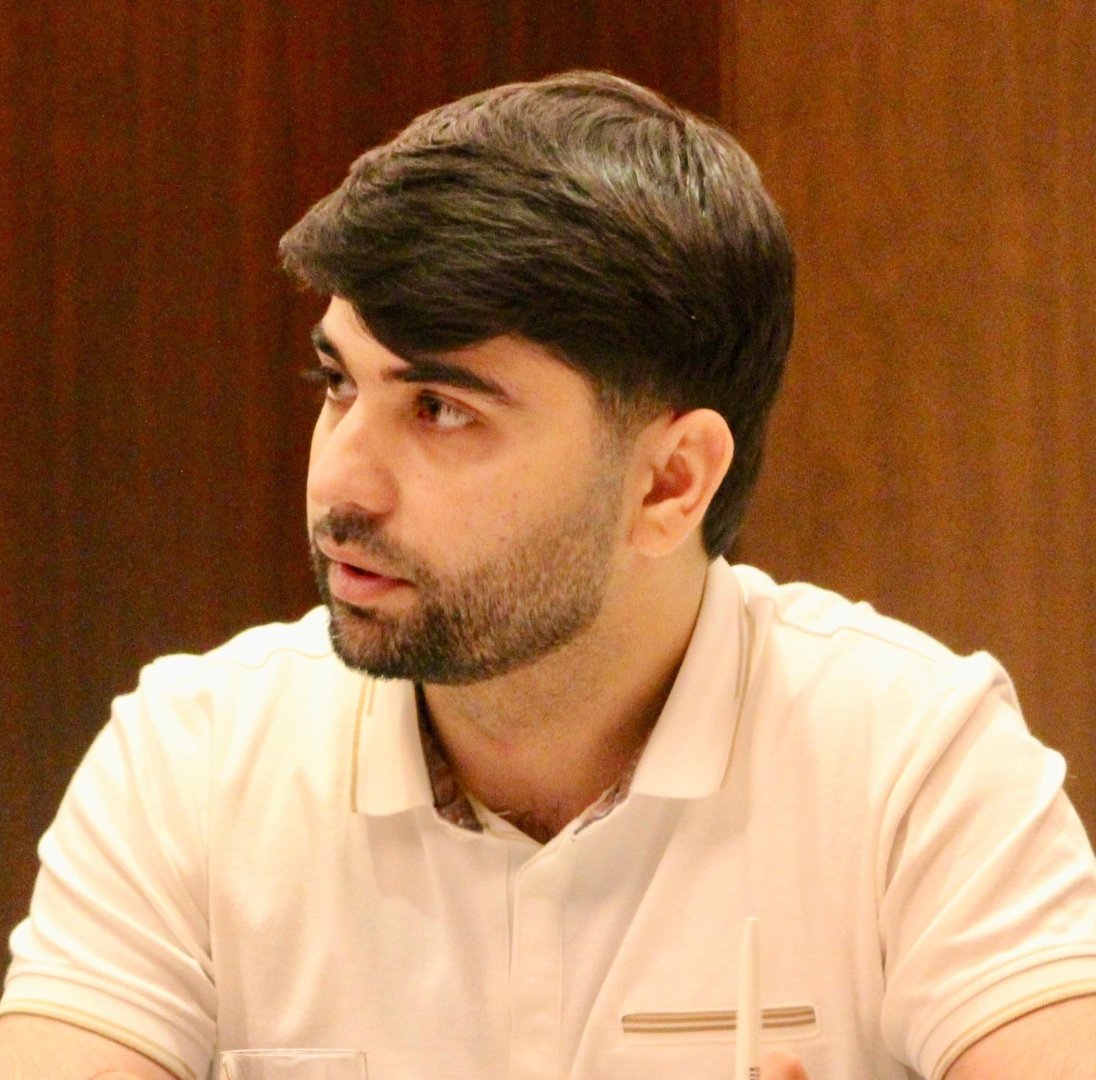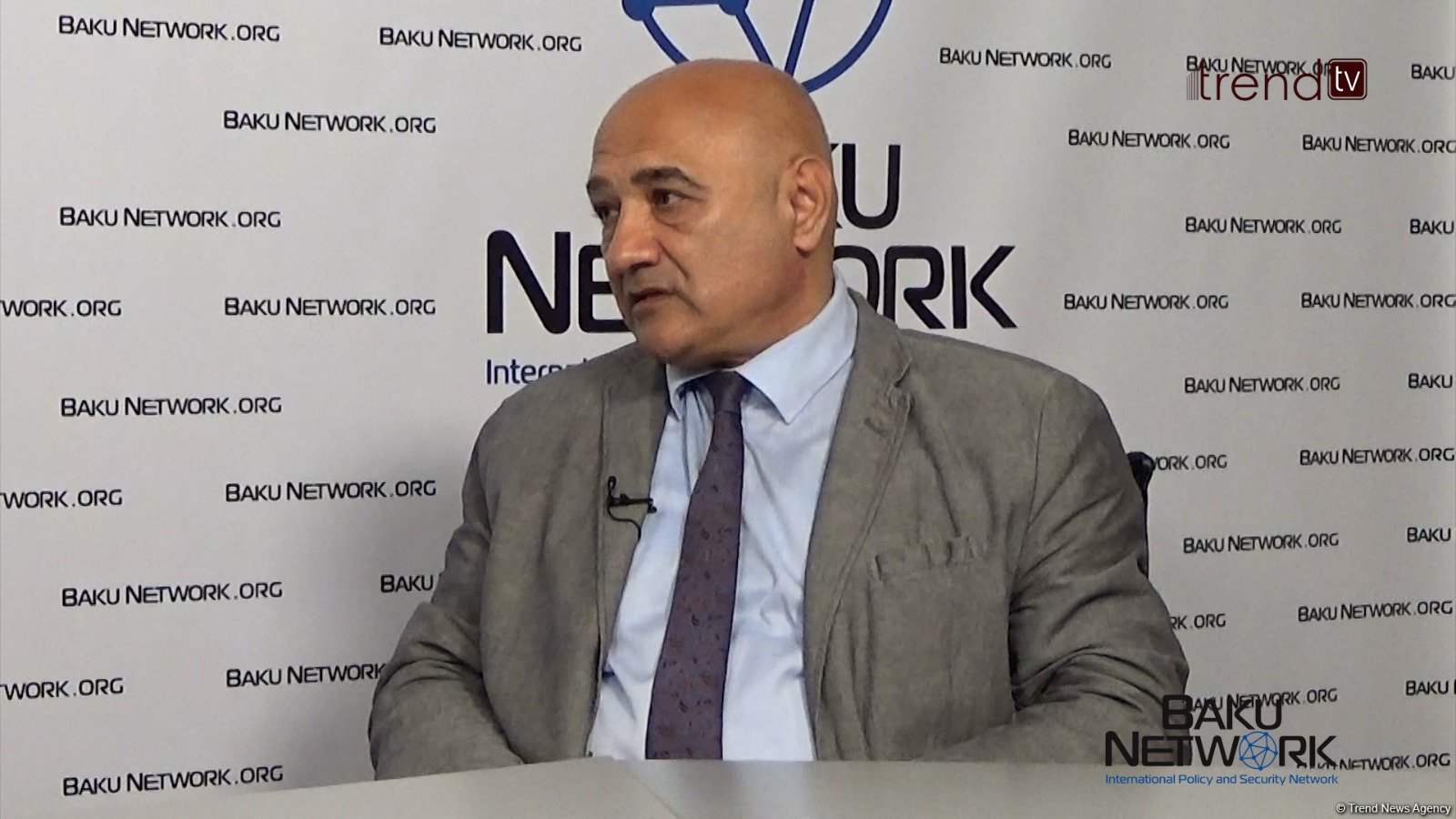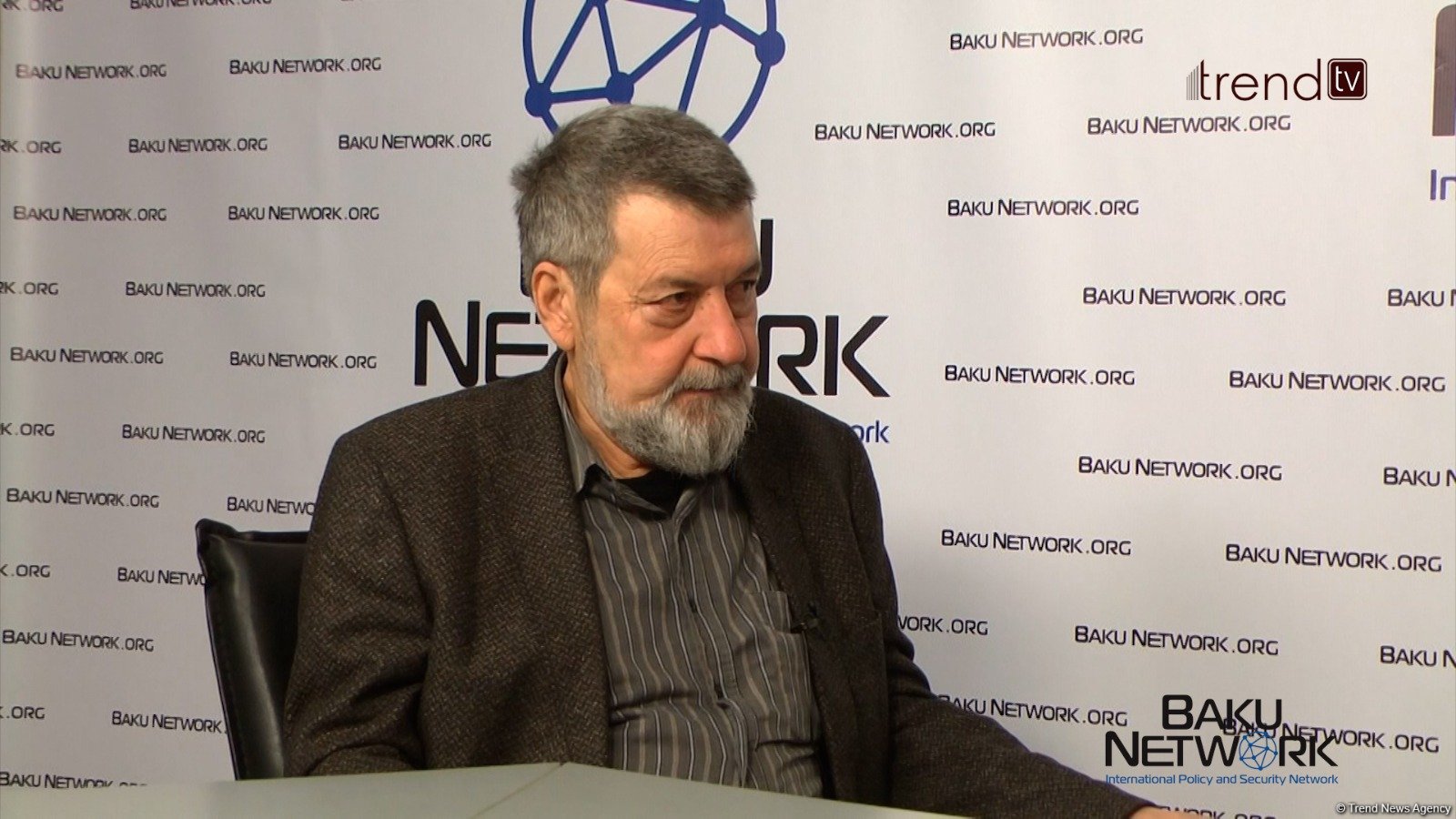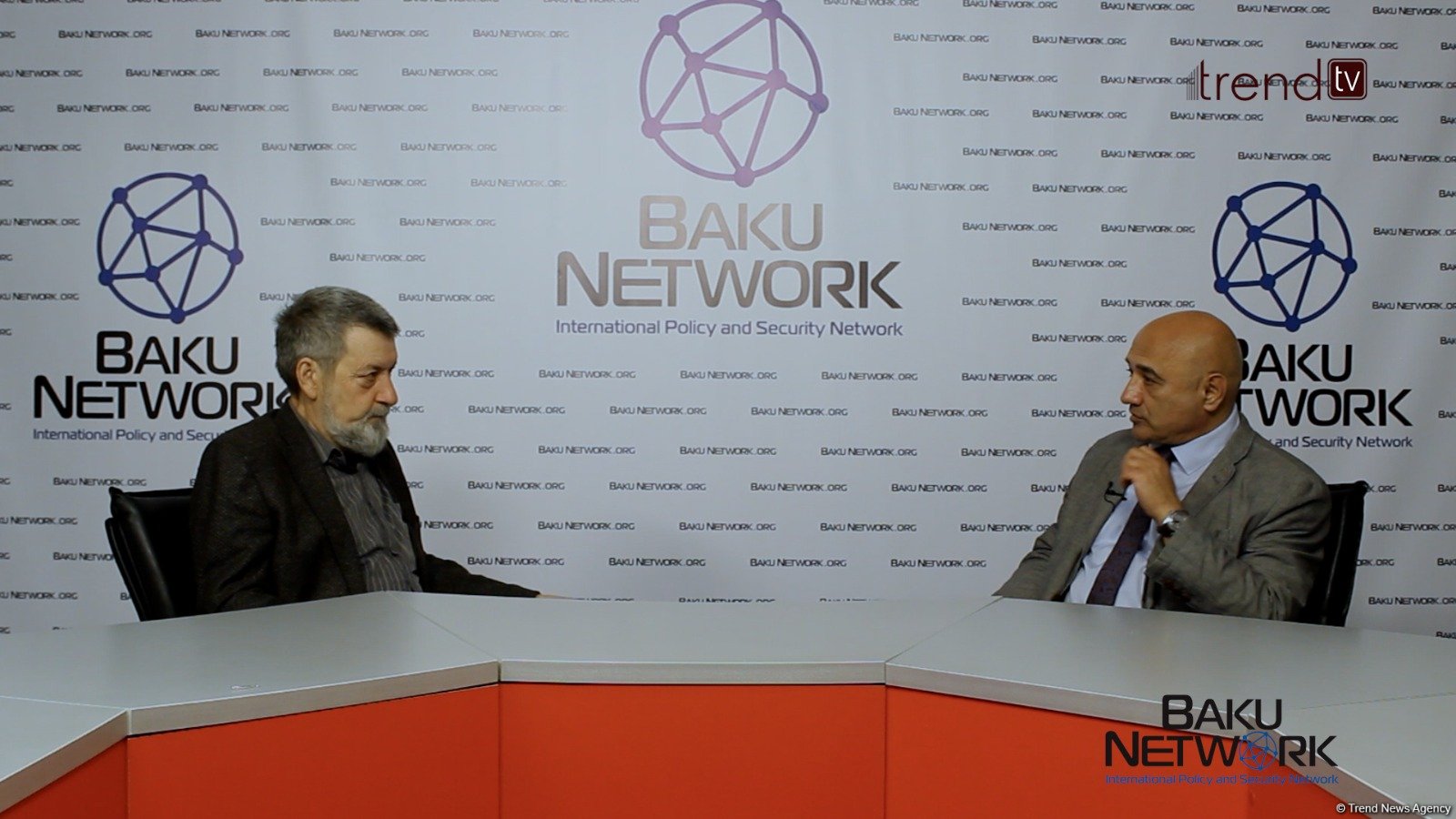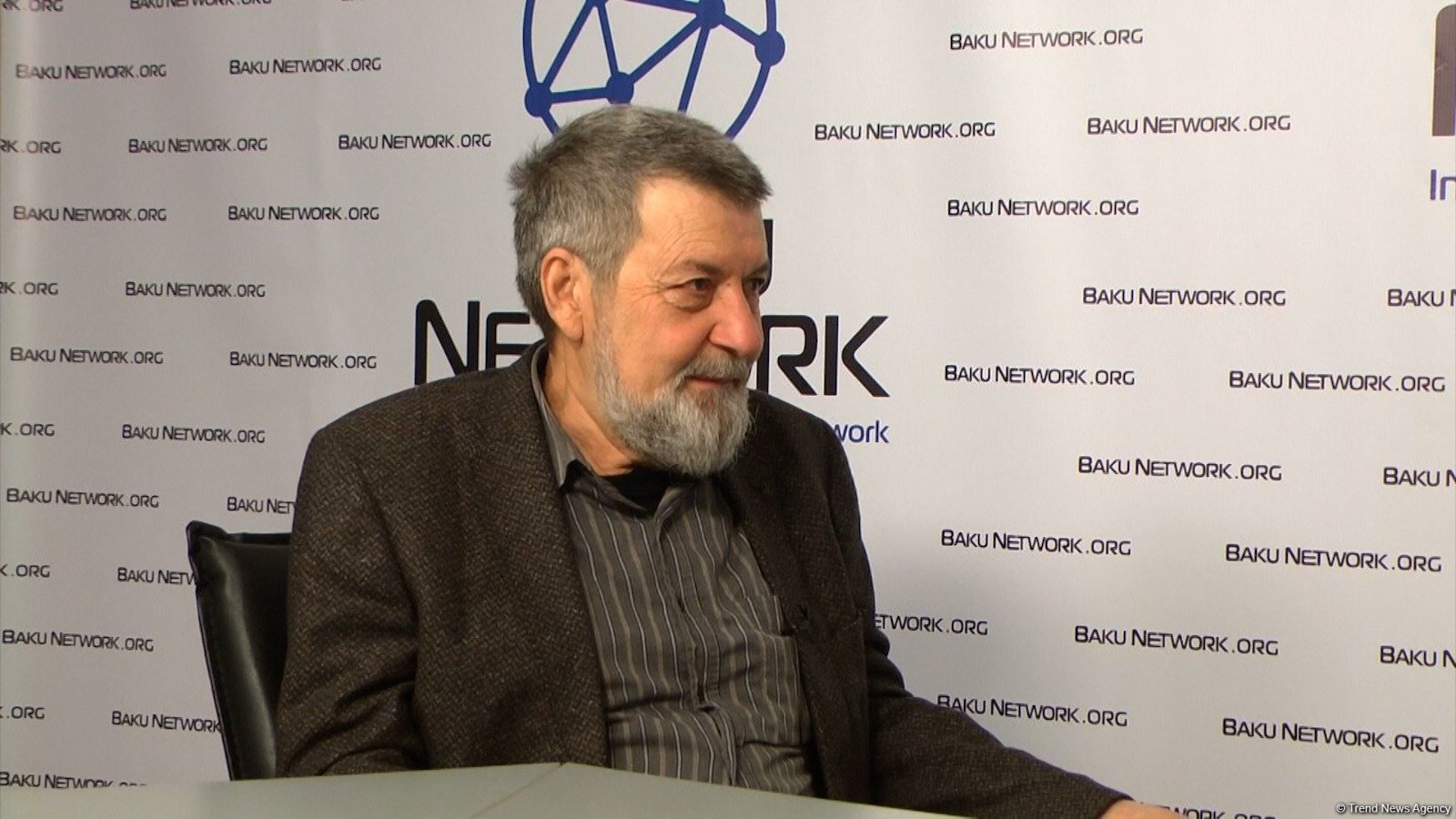BAKU, Azerbaijan, April 7. The Baku Network expert platform rolled out the next part of the analytical video series "Dialogue with Tofig Abbasov", Trend reports.
The guest of the program was People's Artist of Azerbaijan and renowned sculptor, Huseyn Hagverdiyev.
Hagverdiyev shared his reflections on the post-war reality in the South Caucasus, the complex historical entanglements of Armenian-Azerbaijani relations, and the potential for a peaceful future.
Setting a philosophical tone early in the discussion, he emphasized that the main issue today is not conflict, but the recognition that the nations in the region are neighbors.
"It is hard for me to understand what the Armenians are missing. They probably know better. But we all live on planet Earth. The first thing every nation must realize is that we are residents of one house. We are neighbors, we are close," he said.
Hagverdiyev highlighted that Azerbaijan is now a strong state, proven not only on the battlefield but also on the political stage.
"We won the war, but more importantly, we won in a political sense. Azerbaijan today pursues a balanced, independent foreign policy and firmly stands its ground," he added.
Reflecting on his visits to the liberated regions, such as Aghdam and Zangilan, Hagverdiyev expressed shock at the scale of destruction.
"What I saw in Aghdam, I have never seen anywhere in the world. It is something monstrous. There has been nothing like it in the last fifty years. Minefields, trenches, ruins—the Armenians occupied these lands and held them in emptiness for thirty years. This is a sin. The land should be a place of life, creativity, and culture. But it was turned into a lifeless desert," he shared.
He condemned the actions of Armenians in Karabakh, from the destruction of cities to the tragedies in Khojaly, calling it barbarism that cannot be justified.
"To level everything there—cities, villages—this is a crime against humanity. We live in the 21st century. How can a rational person act as though they are in the Middle Ages?" he remarked.
Hagverdiyev focused on the cultural aspect of the conflict, stressing the importance of mutual respect.
"There are no talented or untalented nations. Every nation is talented. But if you do not respect your neighbor’s culture, your own culture loses its humanity and becomes fascist," he stated, emphasizing that without respect for the other, peace cannot be built.
The artist also shared tragic personal stories, such as the families of martyrs who lost two sons in a single day.
"They studied in Russia, came voluntarily, and both perished. This is a fate that has been forever distorted. Such things cannot be forgotten. Therefore, the only way forward is dialogue and a reevaluation of positions," he explained.
Hagverdiyev cautioned the Armenian side against further aggression, affirming that while Azerbaijan is prepared to defend itself, its primary focus is peace.
"We must influence the Armenians. Otherwise, there will be no peace. But if there is another war, they will not survive. It is time for them to realize this. They must change their thinking, their views, and their policies. Otherwise, history will repeat itself with tragedy," he warned.
He reminded the audience that over the last 115 to 120 years, Armenians had been the initiators of military campaigns.
"They always feel like something is missing. They have always attacked. But humanity must create, not destroy," he underscored.
Touching on broader global issues, Hagverdiyev expressed concern over the dehumanization of the world, particularly the weapons industry. He compared the behavior of the Armenian side to Nazi Germany’s actions and reminded the audience of how those ambitions to conquer the world ended.
"History puts everything in its place. They must change their doctrine if they want to be remembered in history not as destroyers, but as creators," he concluded.

